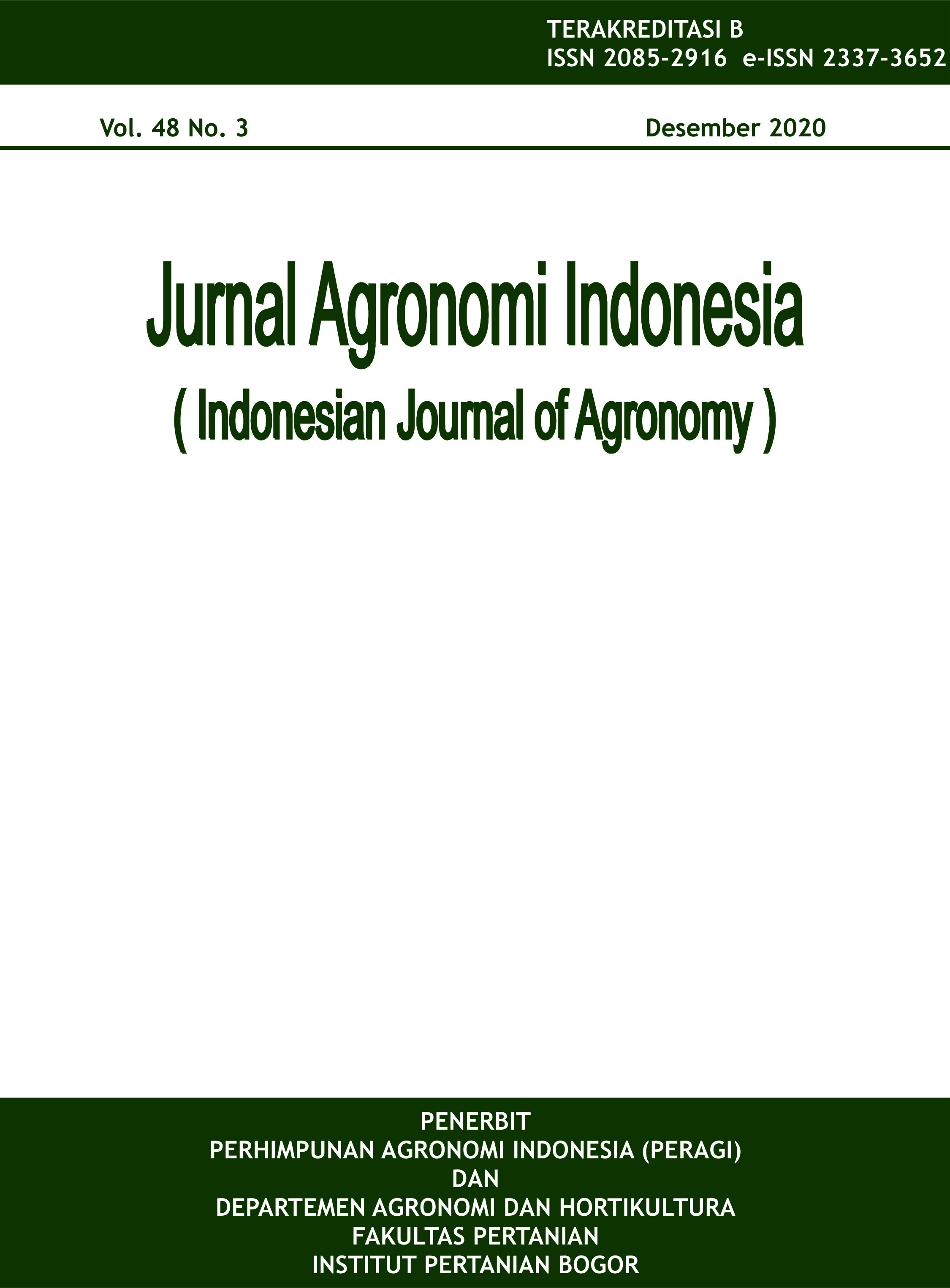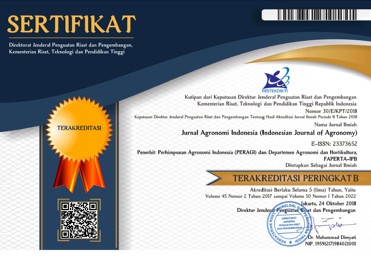Respon Genotipe Talas Colocasia esculenta var esculenta dan var antiquorum pada Interval Pemberian Air Berbeda
Abstract
Taro is known as a plant that is adaptive to high moisture soil. To mitigate the impact of climate change, the genotype response of taro genotypes to variations in water availability is important. The aim of this study was to evaluate the effect of the frequency of water application on the growth and yield of eddoe and dasheen taro types. The research was carried out in the greenhouses of the Cikabayan Experimental Station IPB, Bogor, Indonesia from January to April 2020. The ten taro genotypes were evaluated, consisting of two dasheen types (Talas Sutra and Talas Bentul) and eight eddoe types (S6, S20, S24, S26, S28, S34, S35, and S36). Plants of eight-week-old grown in polybags were treated with different watering frequencies, namely 1, 3, 7, and 15 days until they were saturated. The results showed that all taro genotypes grew more vigorous at watering intervals of 1 and 3 days as indicated by the variables of height, number of leaves, number of tillers, and diameter of the petiole. Fresh weight of yield reached 2-3 times higher in the 1- and 3-day water treatment intervals compared to the 7- and 15-day intervals, indicating the taro plants are sensitive to low soil moisture.
Keywords: climate change, dasheen taro, drought stress, eddoe taro, satoimo













